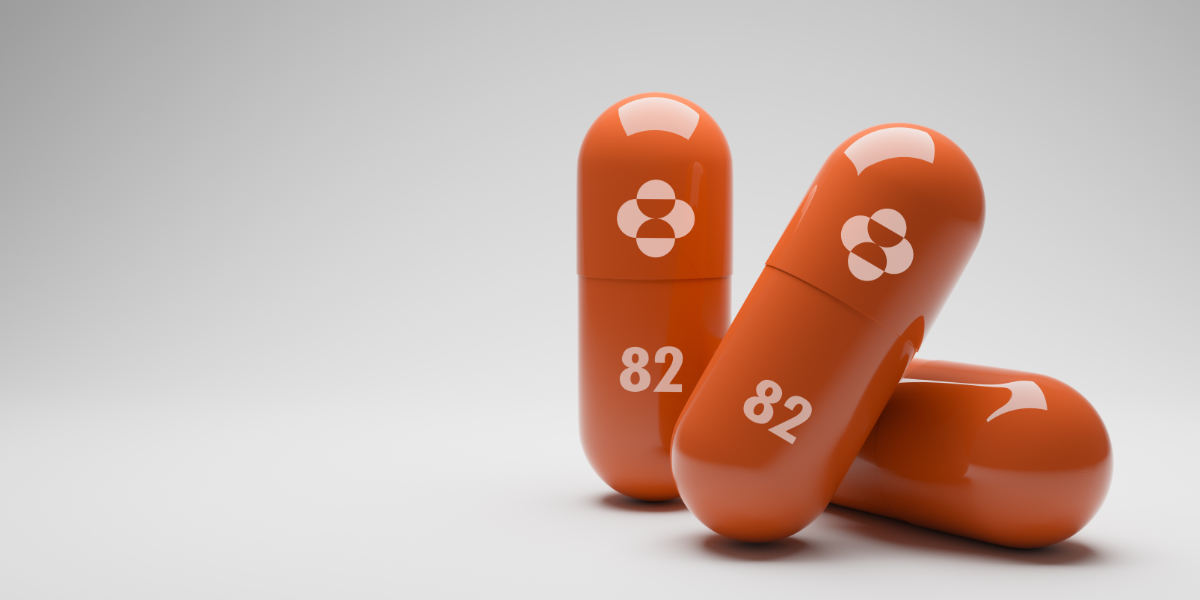Take-at-home COVID drug molnupiravir may be on its way - but vaccination is still our first line of defence
 Quality Stock Arts/Shutterstock
Quality Stock Arts/Shutterstock
The Australian government has pre-purchased 300,000 courses of an experimental antiviral oral drug called molnupiravir.
Interim results announced by the company, US pharmaceutical Merck, show the drug halved the number of patients who ended up in hospital due to COVID. No patient who took the drug died from the virus.
But the drug isn’t yet available for dispensing from pharmacies because it hasn’t received approval from Australia’s drug regulator, the Therapeutic Goods Administration (TGA).
If approved it can be used in the community to prevent patients with mild symptoms from developing more severe disease.
Until then, there will be no legal, effective and safe treatments that people with COVID can take at home to keep them out of hospital. As such, we need to continue our push to get maximum vaccination coverage within the community.
Read more: Stopping, blocking and dampening – how Aussie drugs in the pipeline could treat COVID-19
What is molnupiravir?
Molnupiravir is an experimental antiviral drug that acts against a range of respiratory viruses, including the virus that causes COVID.
For COVID, the instructions for creating more virus are contained in the virus’ RNA. This RNA needs to be read and copied to make new virus particles.
Molnupiravir works by disrupting the replication of the virus. It does this by mimicking two natural compounds called cytidine and uridine that are needed to make RNA. When the body tries to replicate the virus it incorporates molnupiravir into the RNA structure instead of versions of cytidine and uridine. The result is the accumulation of mutations in the virus RNA which then prevent it from causing illness.
This type of technology isn’t new. In fact, we have been using chemotherapy drugs that mimic RNA and DNA ingredients for over 50 years. One drug, called fluorouracil works by preventing DNA production inside cancer cells by mimicking the DNA ingredient thymine.
The pill, molnupiravir, was initially developed to tackle influenza but is also effective at reducing deaths and hospitalisations from Covid-19, the data from human trials showed pic.twitter.com/2BLNnrWQJT
— The Telegraph (@Telegraph) October 1, 2021
Results of the clinical trial
Last week Merck announced interim results of a phase 3 clinical trial of molnupiravir.
The company found the drug significantly reduced the risk of hospitalisation or death in patients who took the drug when compared with patients who took a placebo treatment. In fact, the results were so good, an independent data monitoring committee recommended the trial be stopped early.
Overall, the drug reduced hospitalisations and deaths by around 50%. While 14.1% of patients who took placebo ended up in hospital, only 7.3% of molnupiravir patients had the same outcome.
The results were even better with regard to the death rates. No patient who took molnupiravir died, while eight patients in the placebo group did die.
Importantly, while the clinical trial demonstrated efficacy of the drug, it was also able to show molnupiravir is safe. The rate of side effects was nearly the same in both the molnupiravir and placebo groups. Earlier clinical trials found there are no serious side effects with the drug. The most common, mild effects were headache and diarrhea.
We have to wait for the full data to be released and checked in order to be fully confident in the drug. But the results seem to indicate molnupiravir may be useful for the early treatment of COVID to prevent the development of serious disease and hospitalisation.
If the medical experts at the TGA approve this treatment for use, it will join other COVID-19 treatments such as sotrovimab and remdesivir which are already available to Australian doctors to help treat those with COVID-19.
— Greg Hunt (@GregHuntMP) October 5, 2021
How it will be used
Molnupiravir will be able to be taken orally by patients at home after they receive a prescription from their doctor.
A course of treatment will be eight 200 milligram capsules a day for five days; four capsules in the morning and four capsules in the afternoon. A patient can choose whether they want to take the medicine with or without food, as it doesn’t appear to affect the medicine in the body.
It’s unclear whether a positive COVID test will be required before a prescription can be issued. This is something that will be decided by the TGA.
Health Minister Greg Hunt said he encourages Merck to apply for registration of the drug, and the TGA has stated it’s willing to receive an application for provisional registration at which time they can evaluate the data themselves.
Read more: Could a simple pill beat COVID-19? Pfizer is giving it a go ![]()
This article is republished from The Conversation under a Creative Commons license. Read the original article, published on October 6, 2021.
Disclosure statement
Associate Professor Wheate in the past has received funding from the ACT Cancer Council, Tenovus Scotland, Medical Research Scotland, Scottish Crucible, and the Scottish Universities Life Sciences Alliance. He is Fellow of the Royal Australian Chemical Institute and a member of the Australasian Pharmaceutical Science Association. Nial is science director of the medicinal cannabis company Canngea Pty Ltd, a board member of the Australian Medicinal Cannabis Association, and a Standards Australia committee member for sunscreen agents.

